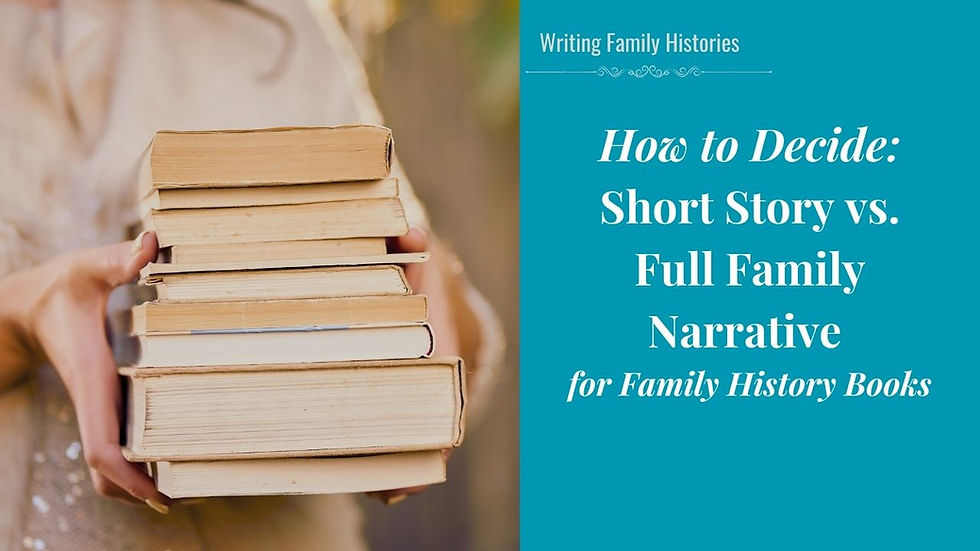How to Decide: Short Story vs. Full Family Narrative for Your Family History
- Devon Noel Lee
- Oct 12, 2024
- 3 min read
Updated: Nov 1, 2024

Writing family history can be an exciting journey, but one of the biggest questions genealogists face is, should you write a short story about one ancestor or dive into a full family narrative? The answer depends on a few key factors, and I’m here to help you decide.
When Shorter Could Be Better
When you're just getting started, tackling a smaller project might be your best bet. A short story usually focuses on a single ancestor and a specific event in their life. This approach can help you ease into the process, especially if you're not feeling too confident about your writing skills.
Think of it like the Dave Ramsey Snowball Effect—you start small, build momentum, and expand as you go when trying to pay off debt. When writing a family story, you start small and build as you go.
Longer Stories Add More Depth
On the other hand, if you’ve got more experience, you might be ready for a full-length family narrative. This type of project weaves multiple individual stories together, giving you the chance to showcase a broader picture of your family’s history. But it’s important to remember that even in a larger narrative, breaking down the story by individual experiences can help you organize and bring your ancestors’ lives to life.
↪️ Do you want to write a family history book?
Grab your copy of this FREE Writing Guide:
How to Decide the Right Length For A Family History Narrative
If you're struggling to decide whether a shorter or longer narrative will capture and preserve your family history best, consider the following:
Your Writing Experience: If you're new to writing family histories, start small. Smaller projects help you gain confidence. As you write about one ancestor, you’ll discover how their story links with others, giving you a natural expansion to work with over time.
Available Documents: The more records you have about an ancestor, the easier it is to expand their story. However, if your records are limited, you can use social history to fill in the gaps and create a more vivid picture. For example, you could explore why your ancestor might have immigrated or how they lived in a particular time and place.
Your Limitations: Consider how much time and energy you can devote to the project. Short stories can often fit into a busy lifestyle, while longer narratives may require more dedicated focus. Also, keep in mind where you want to publish the story—some platforms have word limits, which can influence your approach.
Join the Discussion!
These are just a few factors to help you decide which path to take in your writing journey. Want more tips on how to make your family history writing projects engaging and fun?
Check out my full video for all the details! Watch it here and learn how to bring your ancestors’ stories to life, whether you’re writing a short story or a full family saga!
If you’d like to watch this video and catch more tips like these, head over to my YouTube channel, Write Your Family History. The videos are brief but packed with information that’ll help you grow your family history research without feeling overwhelmed.
More Family History Writing Inspiration

.png)
